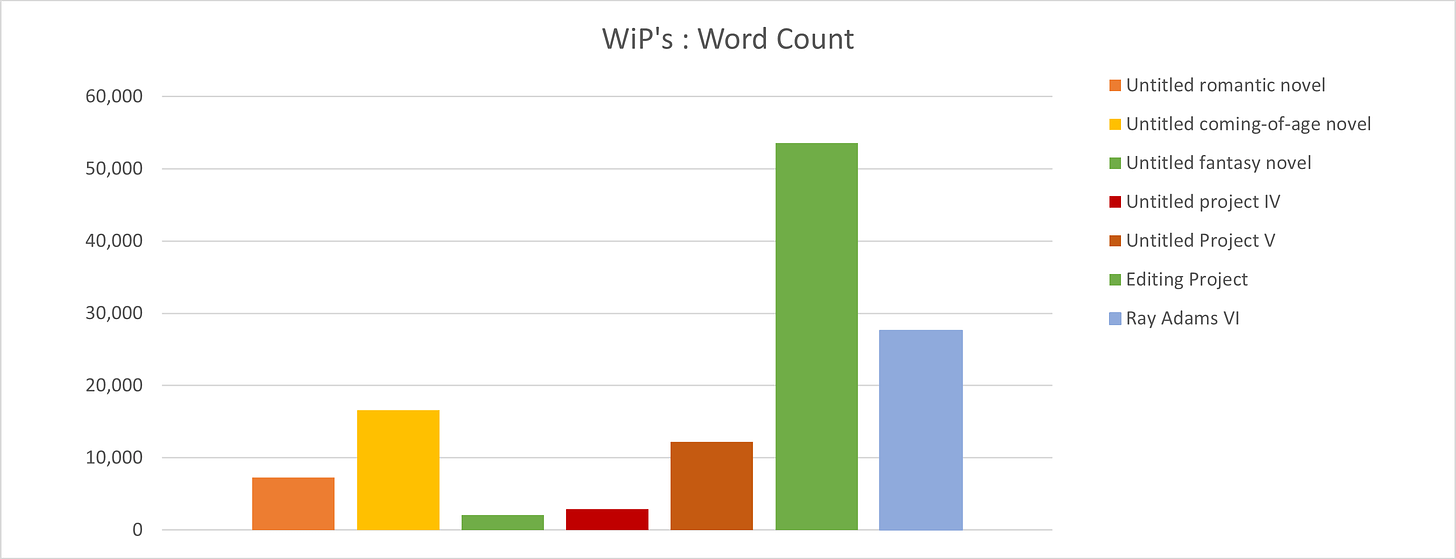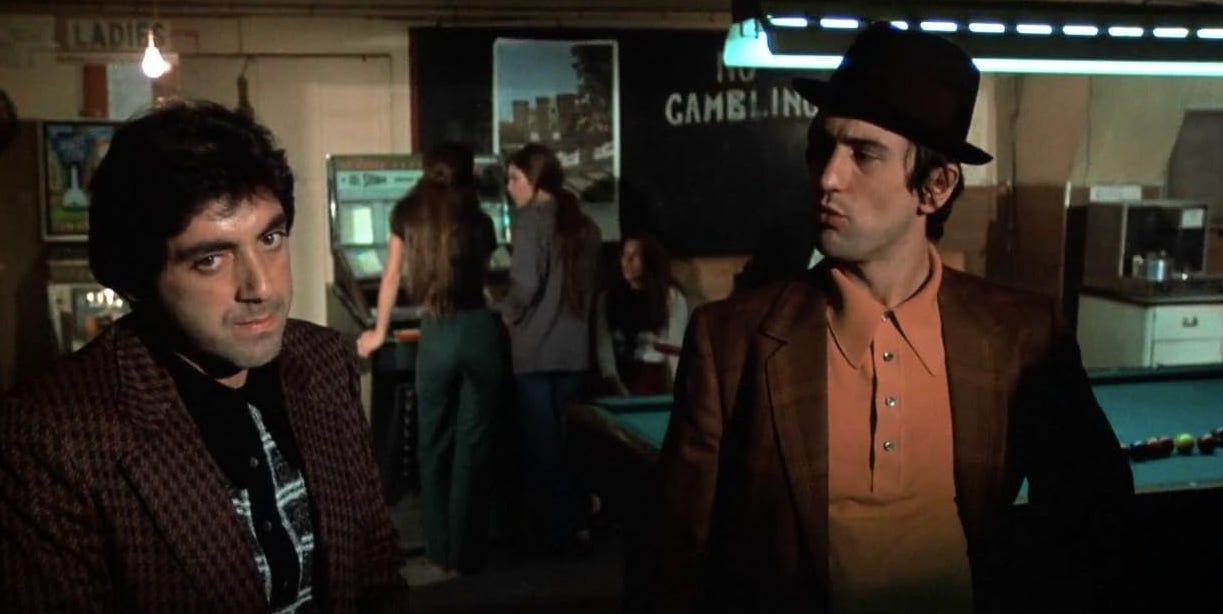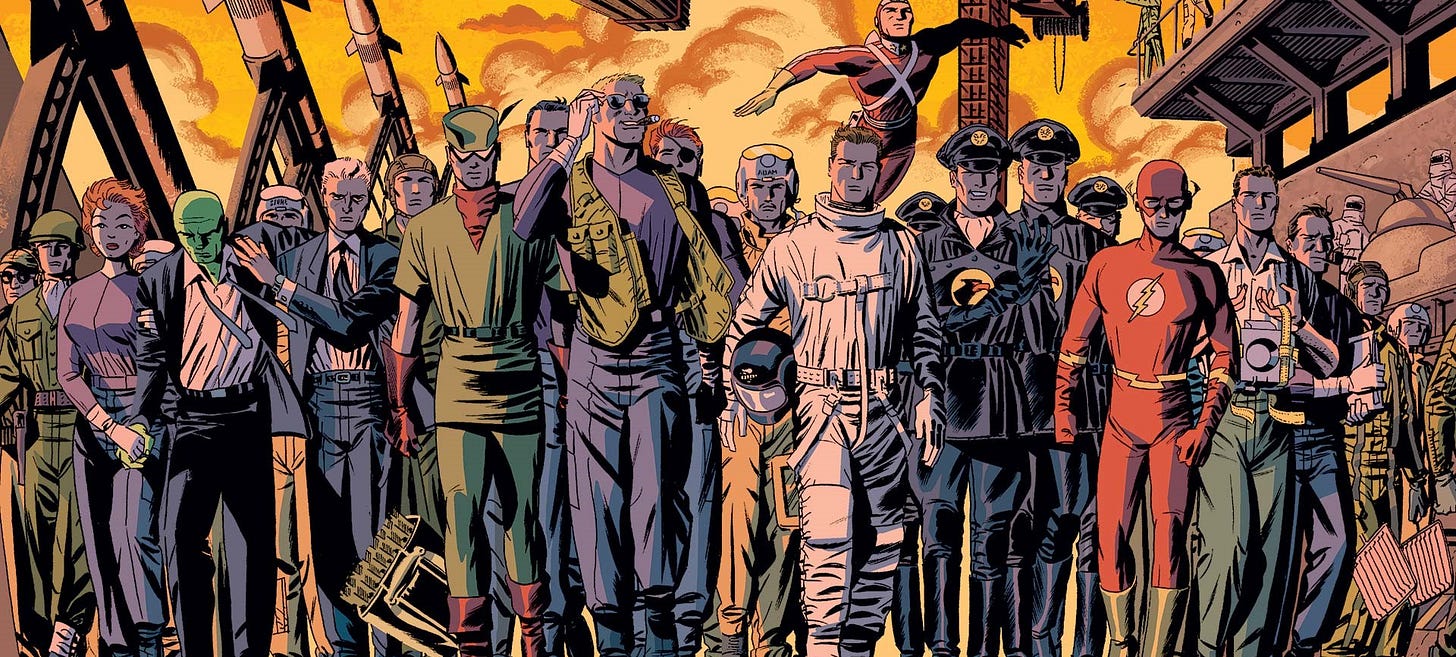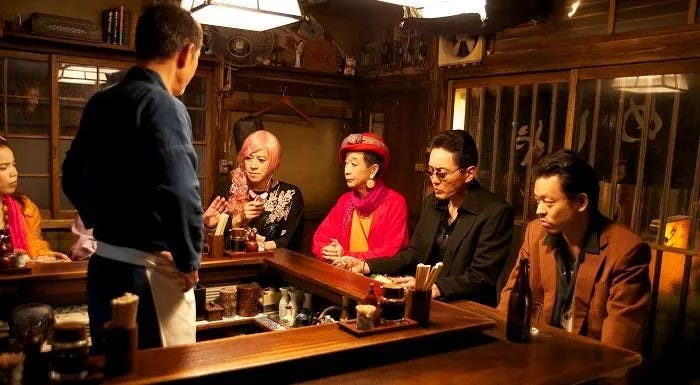WRITING:
It’s something I used to dread. After crawling your way to the end of a manuscript, the idea of having to go back and do it all again made my skin itch. Aagh, it sounds like so much work! Who does that??
Of course, the answer is, if you want to write a decent book, you do. There’s no getting away from it, what you’ve just written is a First Draft. The chances of it already being the best it could be are slim-to-none.
Now, in most Writer’s newsletters, here’s where I’d give you a bunch of tips on how to go about this insanely nitpicky task. But there’s approximately eleventy billion writers blogs out there doing that sort of thing; clearly nobody needs another one. What I offer you is my personal writing experience and the constant reminder that…
There is no one single way of doing this. There are as many ways as there are writers. You need to find what works for you.
Great, what help is that? Well, I’m not here to be helpful1, I’m here to be reassuring. What’s reassuring about that, you ask? Well, the logical conclusion to draw from that is…
You’re not doing anything wrong. You maybe could just be doing it better.
If there’s no right way to do it, you can’t be doing it wrong either. It’s all about stumbling through, trying things and finding what works.
I’ve talked before about how I write start to finish; I open a new Word doc, start at the beginning and just write straight through. I don’t know any other way doing it. For me, even if I have certain set-pieces in mind, how I get from one to the next grows organically out of how I write it. Characters end up in places my writing puts them in. So it will come as no surprise that I edit in much the same way. You can call it the ‘Helter-Skelter ‘ method2. I don’t have it in my mind that “oh, this section needs tidying” or “I need to go back to where the guy does the thing and make that work”. I just start reading from the beginning and polish anything that needs it.
This may seem laborious3 but it’s how it works for me. I see the text somewhat holistically, and the only way for me to make sure that chapter ten works is by coming at it from chapter nine. After all, that’s how you’re going to read it. This technique also lends itself to editing-as-you-go. Quite often, if I’ve not touched a project for a while, even if it’s only half-finished, I’ll start from the beginning, polishing, until I hit the end of what I’ve written and carry on from there. This often means the first half of the book will have been edited quite a bit more than the end, but that’s okay because I feel the further I’ve got into a book, the more I understand it, the more I feel its rhythms, the more certainty I have around it. By the end, I should be making it work naturally; it’s the beginning I’ll need to bring up to that standard.
There may be some authors4 with their heads in their hands at this point, but that’s the thing about writing. Everybody does it differently. This isn’t how you edit, or how one edits, it’s how I edit. It’s not fool-proof - no doubt there will come a day when an editor or publisher says “you need to scrap this middle section,” or “you need that character to come into the story earlier” and I’ll have to take a more surgical approach. But to date it’s worked.
So why this subject this week? Well, that’s because this is what my writing life consist of right now. A project I finished a first draft of a couple of years ago has come back into my life, so to speak, and I’m now in the midst of moving it on from First Draft status.
Interestingly, this particular project does have a sectional problem, in that the start was terrible and the ending was also severely lacking. Yet still, the only approach I know is A → B. I’ve put together a much punchier opening already. But to deal with the end, even though I have ideas, I’m still going to work through it. That way, when I get there, the end will hopefully have coalesced in my head, and I can be sure that the story will have worked its way naturally towards it.
You’d probably do it differently.
I have enjoyed:
Mean Streets - My first viewing of Scorsese’s 1973… well, not actual debut, but the first of his movies to be a proper Scorsese movie5, and I was slightly unprepared for it. Given that it’s a gangster thriller, at times it’s almost closer in tone to something like Linklater’s Slacker, in that it’s less some big drama and more just a bunch of stuff happening. Okay, yes, there is an ongoing narrative around De Niro’s Johnny Boy, his debts and his refusal to work to pay them off, that leads to an inevitable violent conclusion, but until then, a lot of this movie is low-level hoodlums mooching about and hanging out in a crummy bar. And for those of us who love a film where not much happens6, it comes as a refreshing subversion of expectations.
The New Frontier - The loss of Darwyn Cooke in 2016, at the young age of 53, came as a huge blow to comics fans. Not only an artist of a distinctive and singular style, he was a formidable writer. The New Frontier is an astonishing six-issue miniseries that bridges the gap between comics’ Golden and Silver ages. It tells the story of the coming together of the Justice League, and features a plethora of heroes, though it focuses predominantly on Hal Jordan’s Green Lantern and the Martian Manhunter.
Set between the end of WWII and 1960, it references the Korean War, atomic testing, the civil rights movement and the space race in a story that manages to jump all over the place and cover so much in its six issues without ever coming unstuck or feeling disjointed, coming together in a truly epic conclusion. Rereading it was an absolute joy.
Midnight Diner - You know how sometimes you watch the first episode of something, or read the first chapter, and you just know you’ve fallen in love again. You just feel… at home. Now, as referenced above, I just love a story where not much happens. The way I see it, anyone can write a halfway engaging story about the world coming to an end, or with a thrilling series of incidents and confrontations, but it takes truly great writing and/or performance to hold an audience captive with low stakes and a snail’s pace. That’s why I think I lean more to stuff like Midnight Diner, a Japanese show about a guy who owns a restaurant and makes food for the people who come to it. Keep me engaged with that and you’re clearly doing something right.
Choco Pies - They don’t fill you up, they barely taste of anything and I’d wager their nutritional value is negative. I can’t get enough of them.
Greyskin (Deixis Press) and Playtime’s Over (Propolis) are both available direct from their respective publishers, as well as from all the usual places, online and off. You can also support my work by buying Ray Adams’ self-published books, or by simply buying me a coffee.
Am I right??
As in “when I get to the bottom I go back to the top of the slide”.
It is.
… and editors, my publishers…
Actually his third movie, but the first that wasn’t just as a hired director, but that he also co-wrote and was his own project.
My favourite genre.











Thank you for this James, I really do enjoy reading about your process! I have never written a book (maybe one day!) but I have always loved the editing bit... my process usually involves writing without over thinking and then editing and editing and editing until I have to pull myself away !!!!!!!